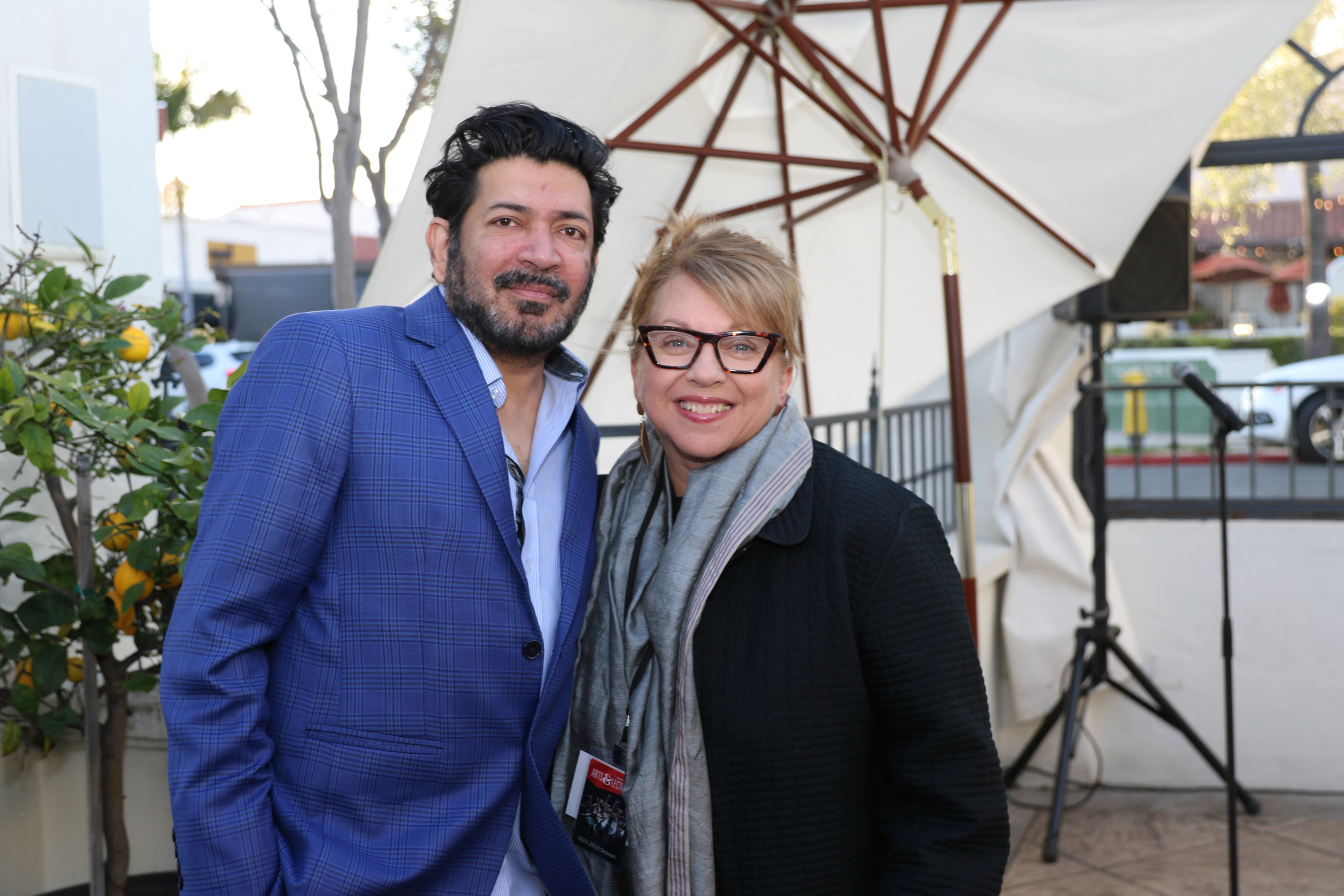Society Matters | Cancer Foundation Hosts Dinner with Siddhartha Mukherjee
Pulitzer Prize Winning Author Does Q&A With Donors

On March 8, the Cancer Foundation of S.B. County (CFSB) hosted an illuminating and enjoyable dinner with Pulitzer Prize–winning author and cancer physician Siddhartha Mukherjee. Afterward, Mukherjee gave a talk on his latest book, The Song of the Cell: An Exploration of Medicine and the New Human, at The Granada Theatre, co-presented by CFSB and UCSB Arts & Lectures. The Cancer Foundation is the fundraising partner of Ridley-Tree Cancer Center.
This intimate gathering of 60 Cancer Foundation supporters, many of them physicians, and Arts & Lectures donors at Villa & Vine (formerly Petros) began with a reception in the courtyard, followed by a Q&A session with Mukherjee and a three-course meal.
Arts & Lectures Miller McCune Executive Director Celesta Billeci and CFSB Executive Director Lori Willis welcomed guests and Mukherjee, who casually addressed questions from the center of the courtyard. Mukherjee demonstrated the ability he is known for — clearly explaining complex medical concepts. In 2011, Mukherjee won the Pulitzer Prize for his book The Emperor of All Maladies: A Biography of Cancer.
The first and most interesting question was about the ability of viruses to mutate. Mukherjee explained that viruses need to make copies of themselves to reproduce, and those that are very error prone tend to mutate very quickly. HIV falls into this category. COVID, thankfully, does not. However, two other factors also affect a virus’s ability to mutate: the number of viral particles that are made and how infectious the virus is. COVID both has a high number of viral particles and is highly contagious. Thus, it evolves. Even though the error rate is very small, Mukherjee explained, the number of viruses that contain errors is large enough to accumulate mutations.
Mukherjee also spoke at length about his research on modulating insulin, which is the body’s response to sugar. There is considerable evidence suggesting that high levels of insulin are related to the incidence of cancer and the growth of cancer. He suspects that one reason pancreatic cancer is particularly challenging is that it is bathed in insulin.
Earlier in the day, Mukherjee spoke with a group of 45 physicians from Ridley-Tree Cancer Center (RTCC), UCLA, and Cottage Hospital at RTCC’s Wolf Education & Training Center. Moderated by Dr. Charles Conway, the event provided an informal opportunity to ask questions and engage in a dialogue about cancer.
Founded in 2012, the Cancer Foundation of Santa Barbara ensures that RTCC continues to provide a comprehensive, high level of cancer care and relies on community support to fulfill its mission. Most CFSB funding goes to RTCC, though it also partners with other organizations. This year, it has already granted more than $3.5 million to RTCC and nearly $200,000 to others. Last year, it granted nearly $2.9 million to RTCC and nearly $200,000 to others.
In 2015, CFSB and Sansum Clinic raised more than $48 million to construct the state-of-the-art RTCC, which opened in 2017. CFSB is currently working on the $8 million Phase II of the project — providing technological and cosmetic upgrades to RTCC’s Nuclear Medicine Department, which is at Cottage Hospital. Last year, construction work was completed and a digital PET/CT scanner, which provides significantly enhanced images for physicians, was purchased. By next year, a new SPECT camera and other upgrades will be made.
Arts & Lectures relies heavily on community support to sustain its lectures, performances, and community outreach and education. More than half of all visiting artists and lecturers engage in some form of outreach or educational activity.
For more info about the Cancer Foundation of Santa Barbara, go to https://cfsb.org/contact/. For more info about UCSB Arts & Lectures, go to https://artsandlectures.ucsb.edu.
For coverage of other events, go to http://independent.com/society .





You must be logged in to post a comment.